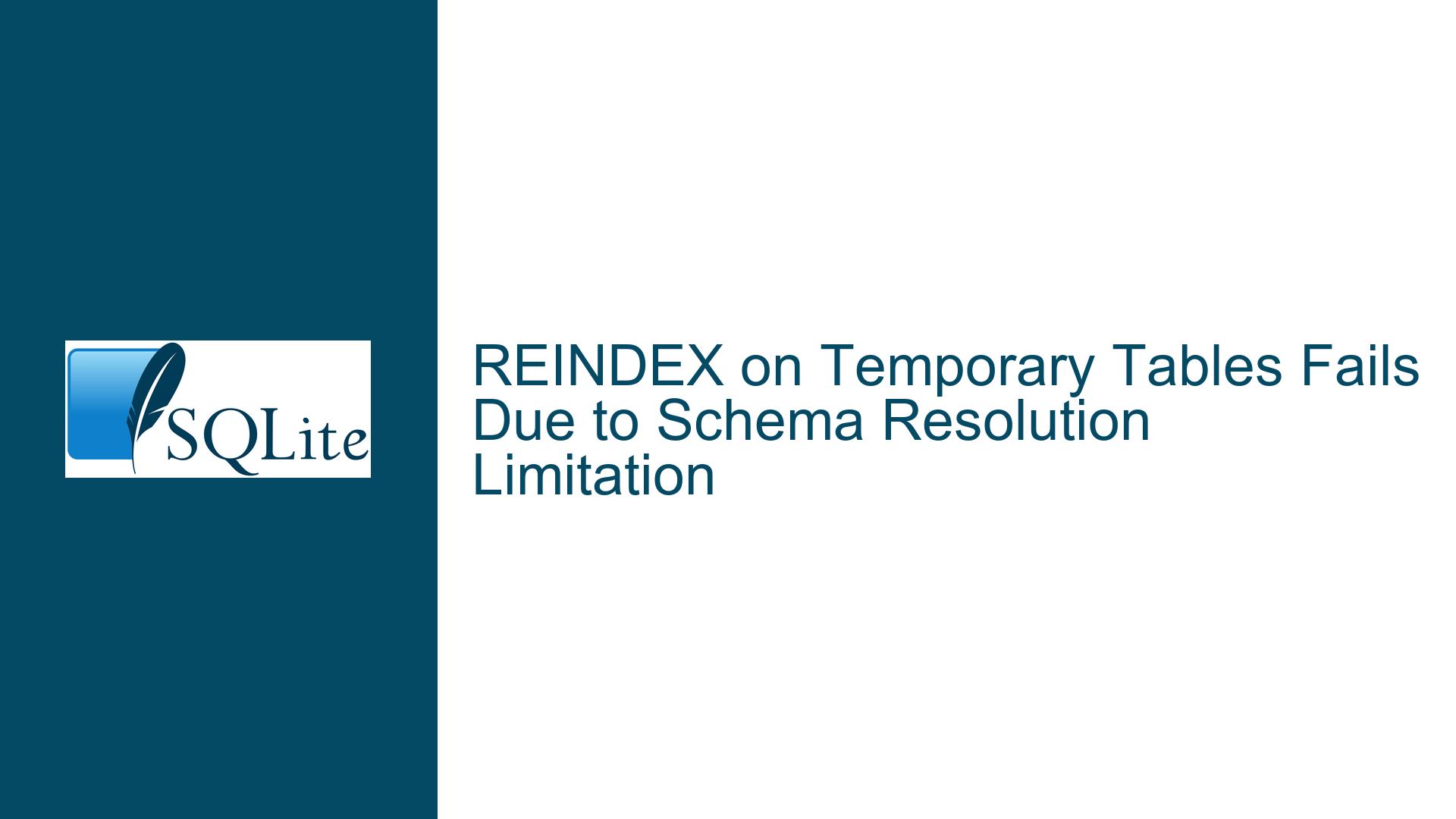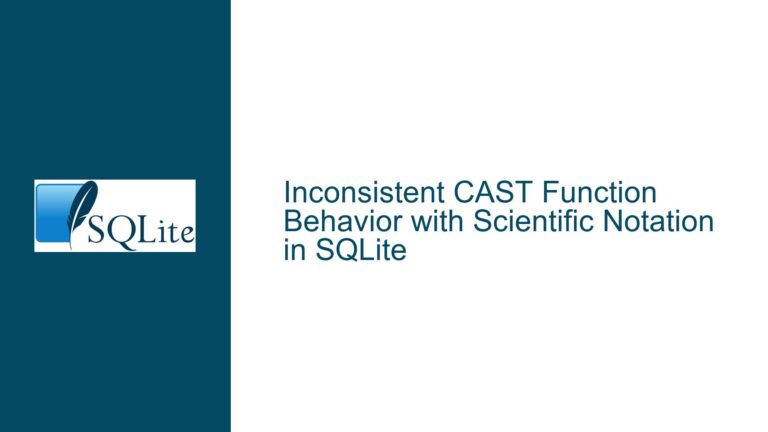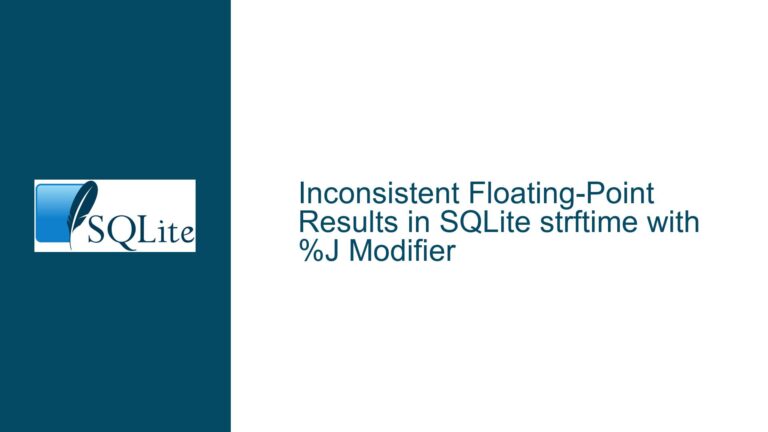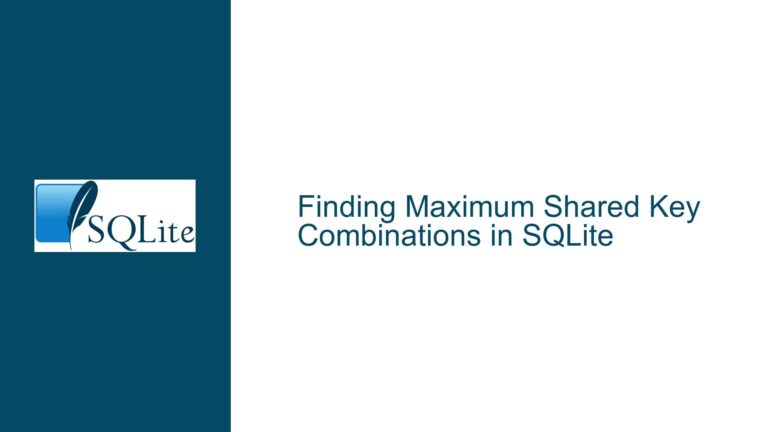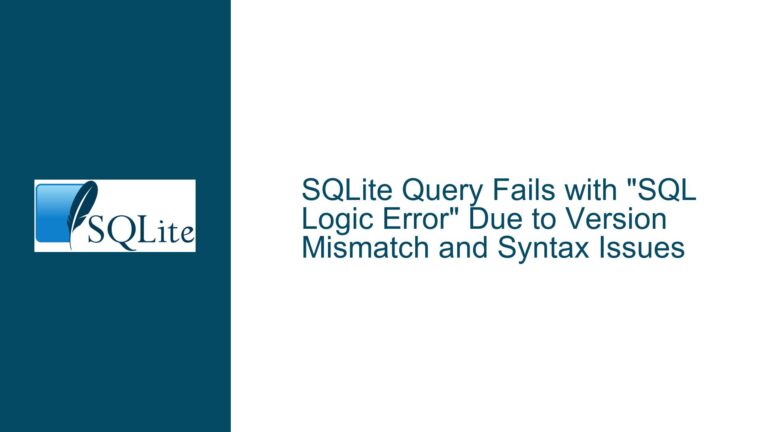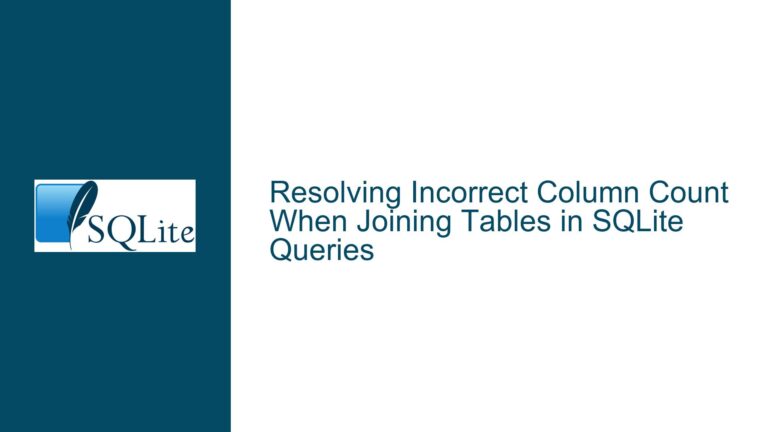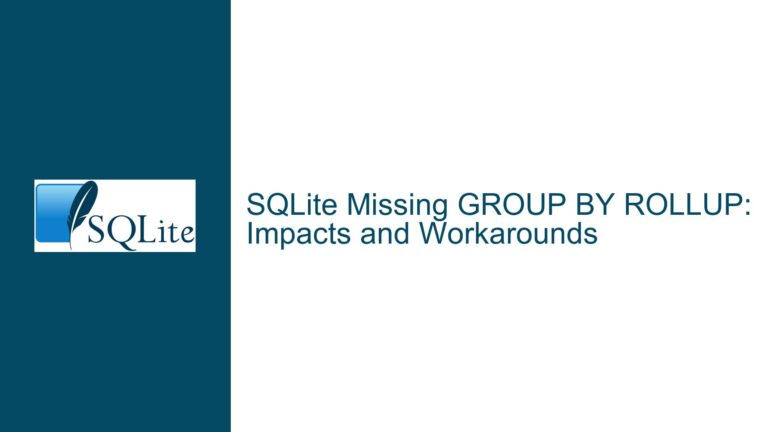REINDEX on Temporary Tables Fails Due to Schema Resolution Limitation
Temporary Table REINDEX Parse Error: Schema Context Mismatch
Issue Overview
The core issue arises when attempting to execute the REINDEX command on a temporary table in SQLite without explicitly qualifying the table name with its schema. The error manifests as a parse error: unable to identify the object to be reindexed. This occurs because the SQLite parser, during the preprocessing phase of the REINDEX command, fails to resolve the unqualified object name against the correct schema where temporary tables reside.
Temporary tables in SQLite are stored in the temp schema (also aliased as TEMPORARY), while persistent tables reside in the main schema. By default, SQLite assumes unqualified object names belong to the main schema. Most Data Definition Language (DDL) and Data Manipulation Language (DML) commands automatically search the temp schema when resolving unqualified names, but the REINDEX command historically does not follow this behavior. For example, executing REINDEX t1 after creating a temporary table t1 will fail because the parser looks for t1 in the main schema, not temp.
This behavior is inconsistent with other SQL operations. For instance, DROP TABLE t1 or SELECT * FROM t1 would automatically resolve t1 in the temp schema if it exists there, even without schema qualification. The REINDEX command’s inability to perform this resolution leads to a parse error rather than a runtime error, as the parser cannot proceed without a valid schema-qualified object reference.
Root Cause: Schema Resolution Logic in REINDEX Command
The root cause lies in the SQLite parser’s handling of schema resolution for the REINDEX command. Unlike other commands, REINDEX does not implicitly search the temp schema when resolving unqualified object names. This limitation stems from historical design decisions where REINDEX was primarily intended for use with persistent objects in the main schema.
When the parser processes REINDEX t1, it performs a lookup for t1 in the following contexts:
- As an index name in the
mainschema. - As a table name in the
mainschema (to reindex all associated indexes).
If t1 is not found in main, the parser throws a parse error. This contrasts with commands like SELECT or DROP TABLE, which perform a fallback search in the temp schema if the object is not found in main. The absence of this fallback logic in REINDEX is a deliberate but non-intuitive design choice that has persisted for compatibility reasons.
Another layer of complexity involves the distinction between named and unnamed schemas. The temp schema is always present, but applications might attach additional schemas using ATTACH DATABASE. The REINDEX command’s inability to search schemas beyond main unless explicitly qualified exacerbates the problem. For example, even if a table exists in an attached schema, REINDEX would fail unless the schema is specified.
Resolution: Schema Qualification and Version-Specific Fixes
Immediate Workaround: Schema Qualification
To resolve the parse error, explicitly qualify the temporary table name with the temp schema:
REINDEX temp.t1;
This directs the parser to look for t1 in the temp schema, bypassing the default main schema lookup. The same applies to indexes in attached schemas:
REINDEX attached_schema.index_name;
Long-Term Solution: SQLite Version 3.45.1 and Later
Starting with SQLite version 3.45.1 (post-check-in 97709ce2a1f5ae05), the REINDEX command’s parser has been updated to search all schemas for unqualified object names. This aligns its behavior with other SQL commands. After upgrading, the following will work without error:
REINDEX t1; -- Automatically resolves 't1' in 'temp' if it exists there
Migration Considerations
- Backward Compatibility: Applications using schema-qualified
REINDEX(e.g.,REINDEX temp.t1) will remain compatible across all SQLite versions. - Version Detection: To ensure smooth operation, check the SQLite version at runtime:
SELECT sqlite_version();
If the version is prior to 3.45.1, enforce schema qualification for REINDEX on temporary or attached objects.
Best Practices for Schema Management
- Explicit Schema Qualification: Always qualify object names with their schema (e.g.,
temp.t1,main.users) in DDL operations to avoid ambiguity. - Avoid Shadowing: Ensure temporary tables do not have the same name as persistent tables in
mainor attached schemas. - Post-Release Validation: After upgrading SQLite, test
REINDEXon temporary tables without schema qualification to confirm the fix.
Conclusion
The parse error during REINDEX on temporary tables is a schema resolution issue fixed in SQLite 3.45.1. Until upgraded, use temp. prefixing. This incident underscores the importance of understanding SQLite’s schema model and version-specific behaviors.
